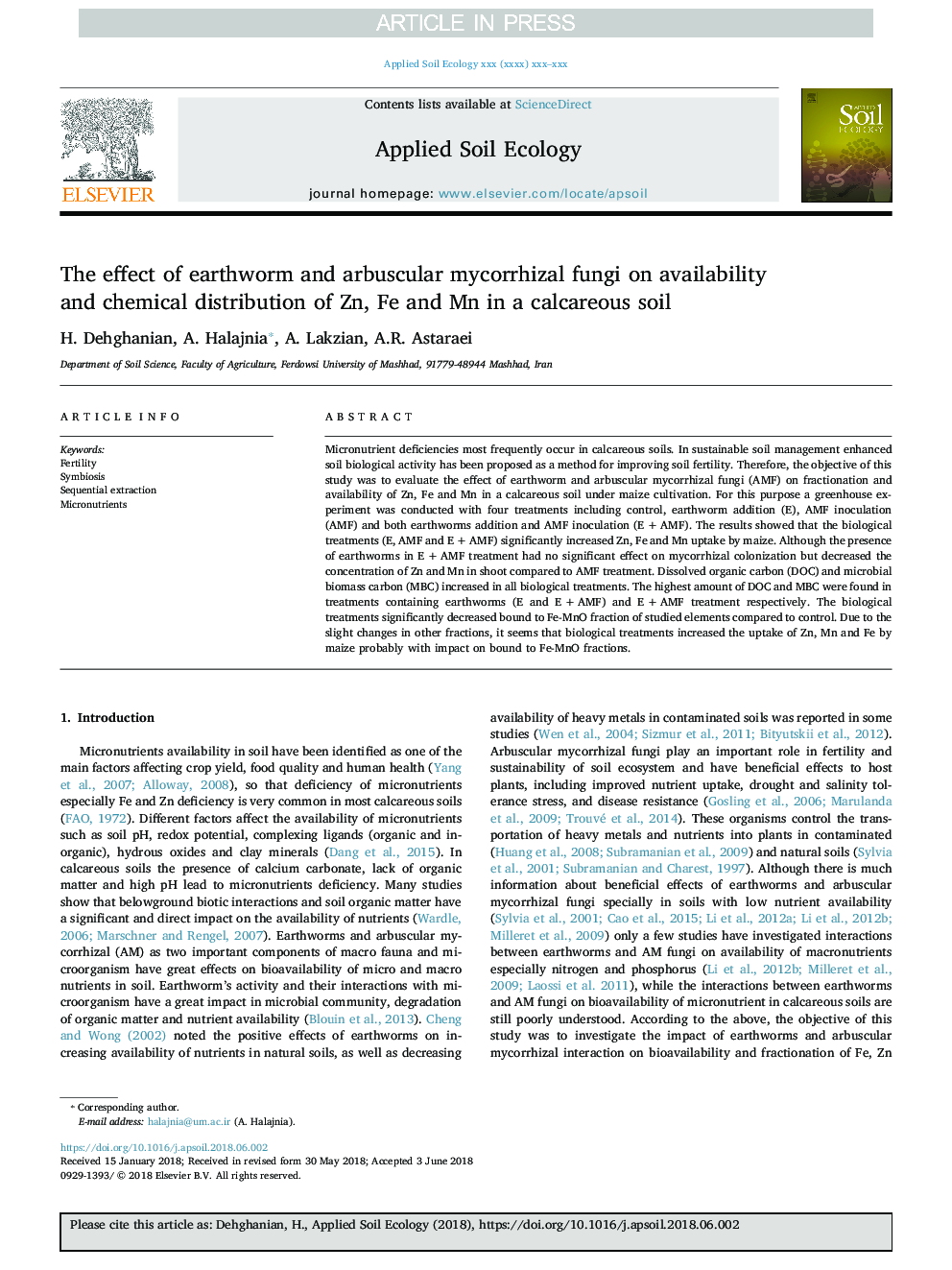| Article ID | Journal | Published Year | Pages | File Type |
|---|---|---|---|---|
| 8846576 | Applied Soil Ecology | 2018 | 6 Pages |
Abstract
Micronutrient deficiencies most frequently occur in calcareous soils. In sustainable soil management enhanced soil biological activity has been proposed as a method for improving soil fertility. Therefore, the objective of this study was to evaluate the effect of earthworm and arbuscular mycorrhizal fungi (AMF) on fractionation and availability of Zn, Fe and Mn in a calcareous soil under maize cultivation. For this purpose a greenhouse experiment was conducted with four treatments including control, earthworm addition (E), AMF inoculation (AMF) and both earthworms addition and AMF inoculation (Eâ¯+â¯AMF). The results showed that the biological treatments (E, AMF and Eâ¯+â¯AMF) significantly increased Zn, Fe and Mn uptake by maize. Although the presence of earthworms in Eâ¯+â¯AMF treatment had no significant effect on mycorrhizal colonization but decreased the concentration of Zn and Mn in shoot compared to AMF treatment. Dissolved organic carbon (DOC) and microbial biomass carbon (MBC) increased in all biological treatments. The highest amount of DOC and MBC were found in treatments containing earthworms (E and Eâ¯+â¯AMF) and Eâ¯+â¯AMF treatment respectively. The biological treatments significantly decreased bound to Fe-MnO fraction of studied elements compared to control. Due to the slight changes in other fractions, it seems that biological treatments increased the uptake of Zn, Mn and Fe by maize probably with impact on bound to Fe-MnO fractions.
Related Topics
Life Sciences
Agricultural and Biological Sciences
Ecology, Evolution, Behavior and Systematics
Authors
H. Dehghanian, A. Halajnia, A. Lakzian, A.R. Astaraei,
